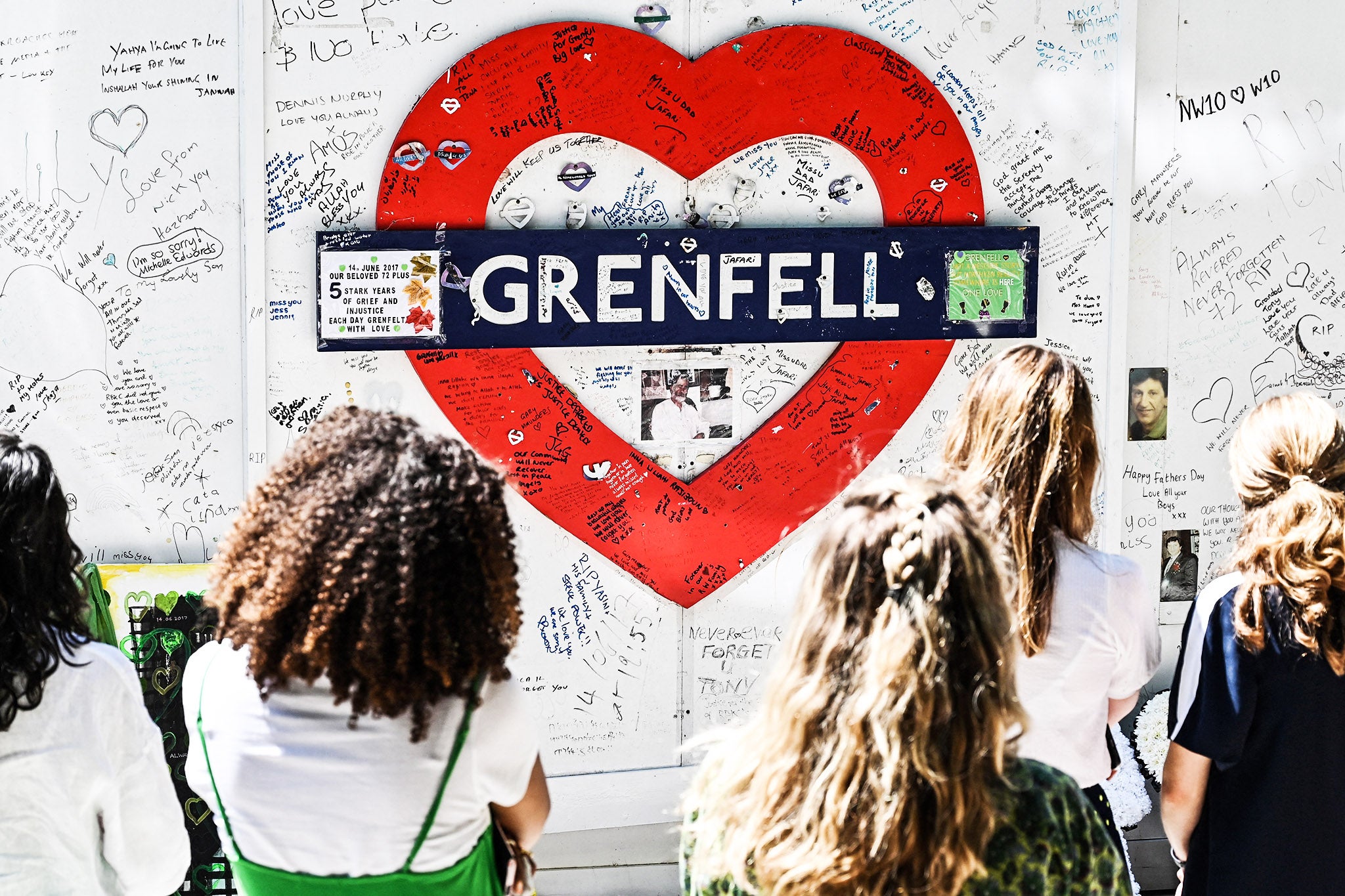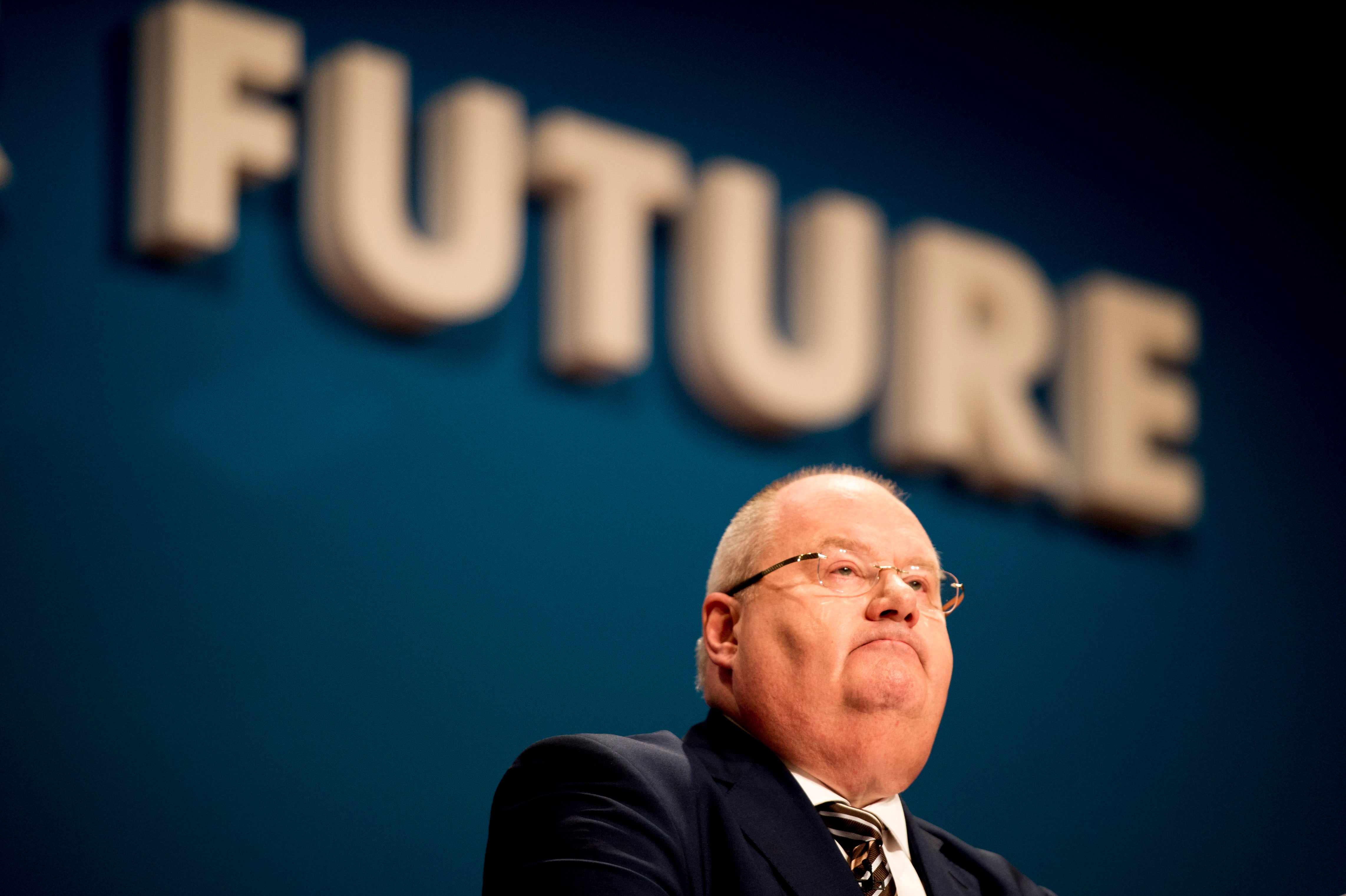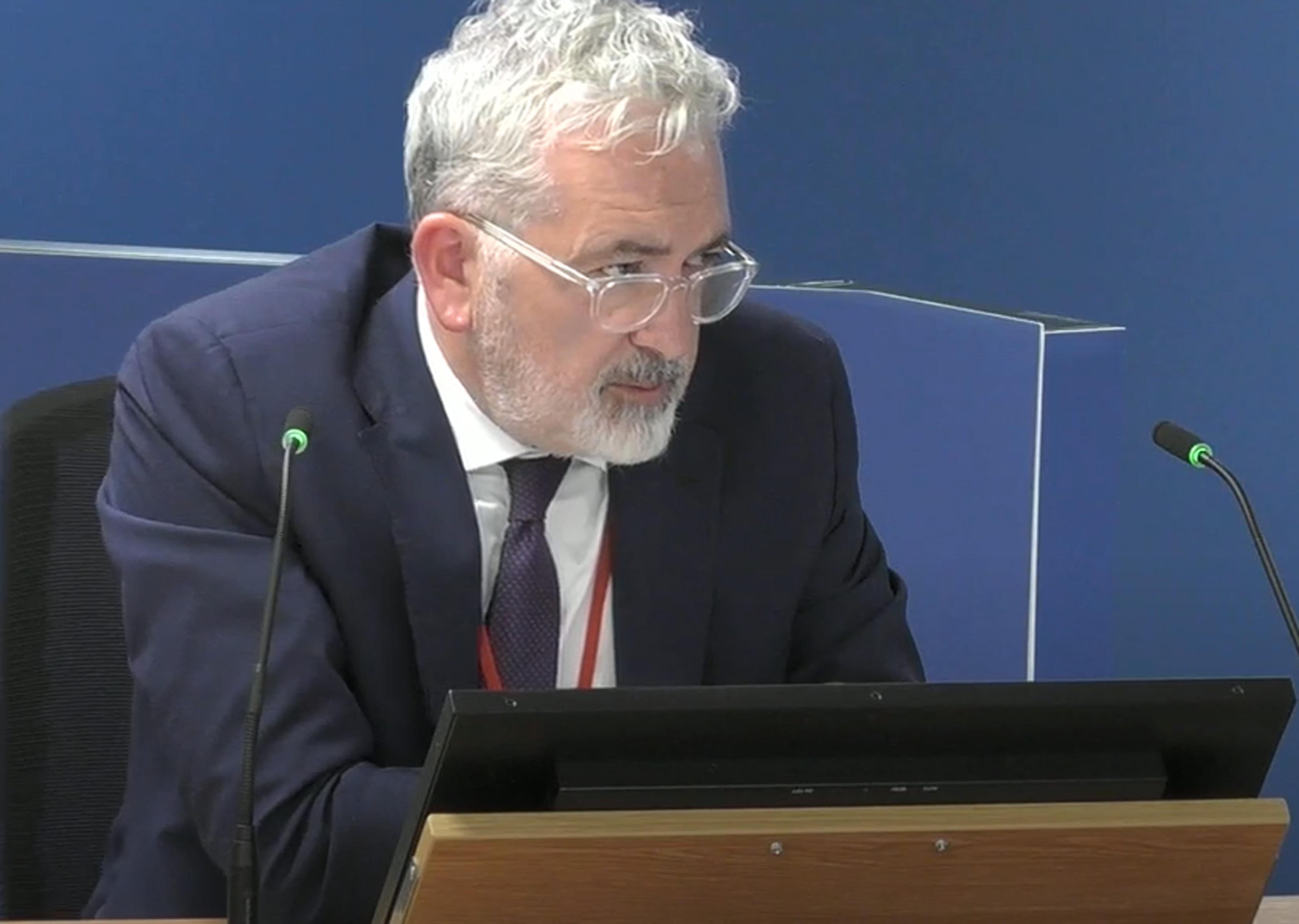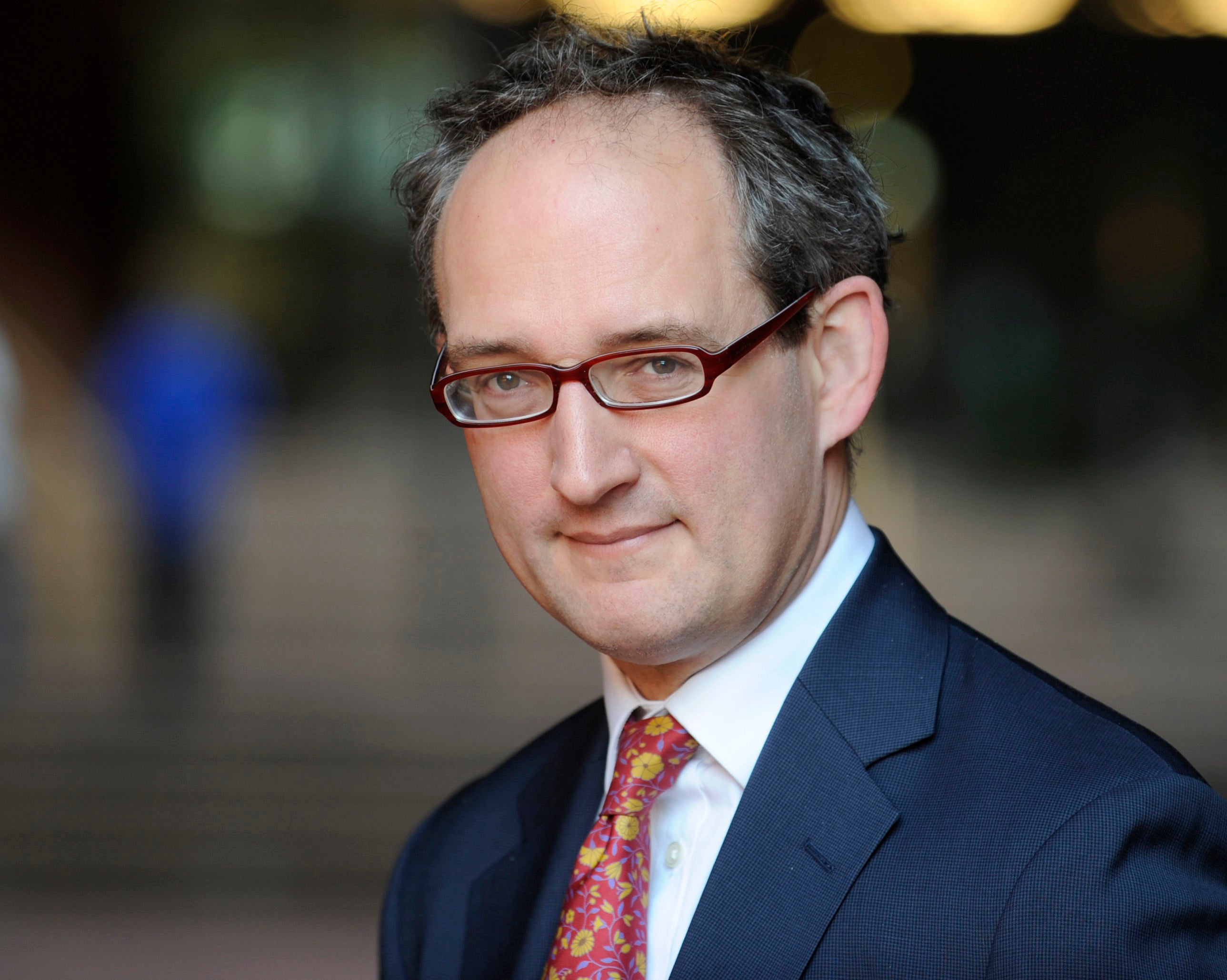Who is to blame for the Grenfell fire? The key figures criticised by report
They include figures from both local and central government accused of repeated failures in their duties

Your support helps us to tell the story
From reproductive rights to climate change to Big Tech, The Independent is on the ground when the story is developing. Whether it's investigating the financials of Elon Musk's pro-Trump PAC or producing our latest documentary, 'The A Word', which shines a light on the American women fighting for reproductive rights, we know how important it is to parse out the facts from the messaging.
At such a critical moment in US history, we need reporters on the ground. Your donation allows us to keep sending journalists to speak to both sides of the story.
The Independent is trusted by Americans across the entire political spectrum. And unlike many other quality news outlets, we choose not to lock Americans out of our reporting and analysis with paywalls. We believe quality journalism should be available to everyone, paid for by those who can afford it.
Your support makes all the difference.Several individuals have faced criticism in the Grenfell Inquiry’s final report over their role in the disaster.
They include figures from both local and central government accused of repeated failures in their duties.
The Government will “carefully consider” the findings of the Grenfell Tower Inquiry to “ensure that such a tragedy cannot occur again”, the Prime Minister has said.
The inquiry’s final report, published on Wednesday, found the fire that killed 72 people in 2017 was the result of “decades of failure” by central government and the construction industry to act on the dangers of flammable cladding.
In a written statement, Sir Keir Starmer noted the report had found “substantial and widespread failings” and thanked inquiry chairman Sir Martin Moore-Bick and panel members Thouria Istephan and Ali Akbor for their work.
He said: “The Government will carefully consider the report and its recommendations, to ensure that such a tragedy cannot occur again.
“I hope that those outside government will do the same.
“Given the detailed and extensive nature of the report, a further and more in-depth debate will be held at a later date.”
The Prime Minister added: “My thoughts today are wholly with those bereaved by, and survivors of, the Grenfell Tower tragedy and the residents in the immediate community.
“This day is for them.
“I hope that Sir Martin’s report can provide the truth they have sought for so long, and that it is a step towards the accountability and justice they deserve.”
Below are the key figures criticised by name in the inquiry.
– Lord Pickles, communities and local government secretary, 2010-2015
As secretary of state in the department responsible for building regulations, the inquiry found Lord Pickles oversaw a culture focused on deregulation, where civil servants felt unable to raise concerns about fire safety.

Sir Martin said there was a “wealth of material” to show Lord Pickles was an “ardent supporter” of deregulation and “the pressure within the department to reduce red tape was so strong that civil servants felt the need to put it at the forefront of every decision”.
Lord Pickles himself told the inquiry he would have regarded it as “ludicrous” if civil servants thought the drive for deregulation covered building regulations, but Sir Martin said documentary evidence supported claims by officials that deregulation was “a dominant influence within the department”.
He said it was “not uncommon” for the building regulations and standards division to receive emails thanking them for their efforts in meeting Lord Pickles’ “ambition on deregulation”.
The report said: “In the years that followed the Lakanal House fire the Government’s deregulatory agenda, enthusiastically supported by some junior ministers and the secretary of state (Lord Pickles), dominated the department’s thinking to such an extent that even matters affecting the safety of life were ignored, delayed or disregarded.”
It concluded: “The failure to foster a culture in which concerns could be raised and frank advice given represents a serious failure of leadership on the part of ministers and senior officials.”
During the inquiry itself, Lord Pickles provoked outrage from survivors after giving the wrong figure for the number of people killed in the disaster, saying 96 rather than 72.
– Brian Martin, principal construction professional, Department for Communities and Local Government (DCLG)
Brian Martin had been the civil servant in charge of building regulations for fire safety for 17 years by the time of the fire, including the guidance in Approved Document B, the official fire safety guidance for the construction industry.
Sir Martin’s inquiry found he had been given “too much freedom of action without adequate oversight” and repeatedly failed to bring fire safety risks to the attention of his superiors.
The report said: “It is not clear how Brian Martin was chosen to be the official with day-to-day responsibility for the Building Regulations and Approved Document B, why he was allowed to remain in that position for so long, or why he was allowed to wield so much influence over the department’s response to developments.”
The inquiry found Mr Martin had shown “little appetite” for reviewing Approved Document B, even after the inquests into a fire at Lakanal House in Camberwell, south London, in 2009.
He also played a role in shutting down the Building Research Establishment’s investigation into the fire after barely a month, citing concerns about the cost of an investigation.
The inquiry accused him of making “misleading statements” to the Lakanal House inquests and providing “disingenuous” advice to then-housing minister Don Foster after the inquests concluded in 2013, in which he “set out to give the minister to understand that the coroner’s concerns were in fact groundless”.
– Carl Stokes, fire assessor, Kensington and Chelsea Tenant Management Organisation (KCTMO)
A former firefighter, Carl Stokes was responsible for carrying out fire assessments for the whole of KCTMO’s estate.
The inquiry found he had been “allowed to drift into” his role, for which he was not qualified.
The report said: “He had misrepresented his experience and qualifications (some of which he had invented) and was ill-qualified to carry out fire risk assessments on buildings the size and complexity of Grenfell Tower, let alone to hold the entire TMO portfolio.
“As a result there was a danger that fire risk assessments would not meet the required standard.”
The report said Mr Stokes’ methods for carrying out fire risk assessments “suffered from serious shortcomings”, including often failing to check whether the TMO had taken action to respond to identified risks.
London Fire Brigade (LFB) officers had also expressed concerns about his competence, but KCTMO “continued to rely uncritically on him”, making the danger “more acute”.
Grenfell United, representing some of the bereaved and survivors, said it was “a damning indictment of this country that amateurs, like Carl Stokes and Brian Martin, can pose to be experts, putting countless lives at risk and taking the lives of our loved ones”.
– Robert Black, chief executive, KCTMO
The inquiry found an “entrenched reluctance” on the part of KCTMO boss Robert Black to tell either his board or the local authority’s scrutiny committee about fire safety issues or LFB’s concerns about compliance with safety regulations.

It said: “That failure was all the more serious because there were chronic and systemic failings in the TMO’s management of fire safety of which the board should have been made aware.”
During the inquiry, retired judge Sir Martin Moore-Bick heard Mr Black waited two hours before forwarding a list of residents to firefighters on the night of the blaze, saying his organisation had no role in emergency planning.
Mr Black quit as KCTMO chief executive on June 30 2017, 16 days after the fire.
– Nicholas Holgate, chief executive, Royal Borough of Kensington and Chelsea (RBKC)
Nicholas Holgate’s response to the disaster was strongly criticised by Sir Martin, who found he had been “unduly concerned for RBKC’s reputation”.

Describing Mr Holgate as “reluctant to take advice” from those with more experience, Sir Martin said he was “not capable of taking effective control of the situation and mobilising support of the right kind without delay”.
He resigned on June 22 2017, eight days after the fire.